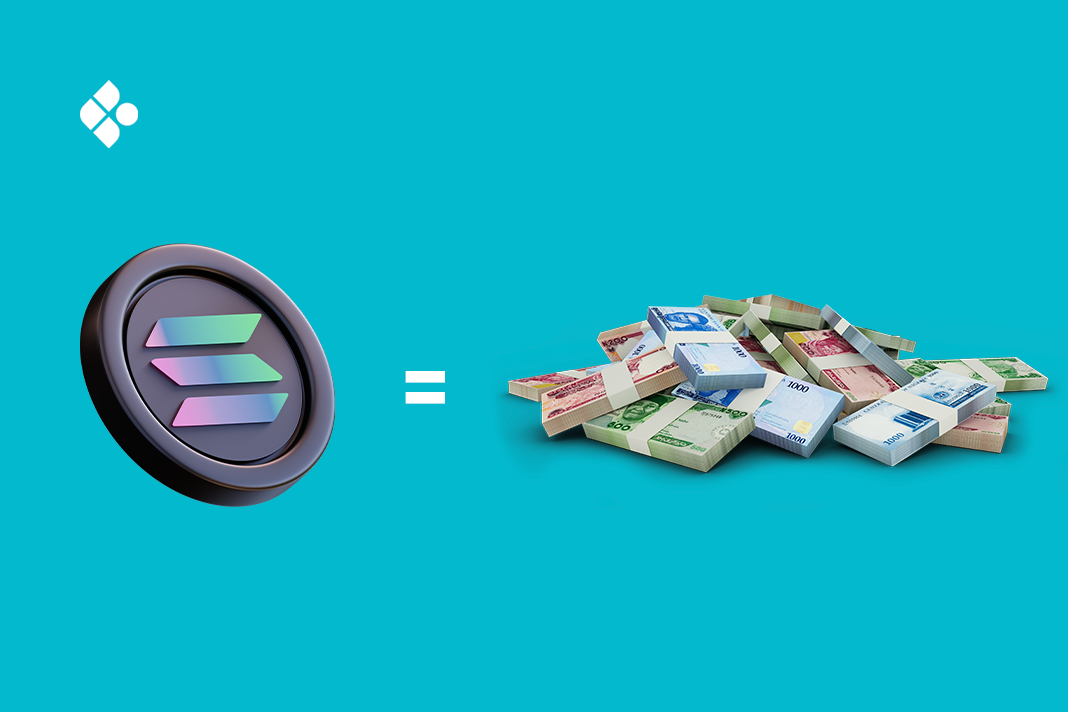Have you ever felt like too many things are happening simultaneously in the Bitcoin market? Like the market is too fast-paced, and you can’t seem to find the right time to sell your Bitcoin holdings?
Making the right move can be as tricky as finding your way through a dense fog. But it doesn’t have to be. In this article, we’ll go through 8 important tools that will help you make informed decisions on when to sell your Bitcoin.
These 8 vital tools are:
- Blockchain Explorers
- Decentralised Exchanges
- Market Analysis tools
- Price Alert Tools
- News Aggregators
- Social Networks
- Crypto Portfolio Trackers
- Market Sentiment Analysis Tools
Now, let’s go through these vital tools and find out what they are and how they would help you track Bitcoin to make the right decisions before selling.
8 Essential Tools for Tracking Bitcoin Prices Before Selling
1. Blockchain Explorers

A Blockchain Explorer is an online tool to view all information related to past and current transactions on a particular Blockchain.
Information on transactions, such as the sender, receiver and amount, can be viewed on the Blockchain. More technical data like the transaction hash and nonce can be viewed there.
Many things can be found or done when we leverage the capabilities of the Blockchain.
There are many examples of Blockchain Explorers. For example, the Bitcoin Explorer (for the Bitcoin Blockchain), Etherscan (for the Ethereum Blockchain), Polygonscan (for the Polygon Network) and much more.
Paste the transaction ID into the search bar on the Explorer’s homepage to view all the information on a particular transaction on the Bitcoin network.
2. Decentralised Exchanges
As the name suggests, a decentralised exchange is a peer-to-peer marketplace with no central authority where users can trade cryptocurrencies without needing a traditional intermediary to facilitate funds transfer.
Decentralised Exchanges offer a unique and decentralised data collection that would provide valuable insights into the right time to sell your Bitcoin.
Carefully study the trading data of Bitcoin along with the trades, prices and volumes of those trades to identify trends or patterns of price fluctuations to help decide when to sell.
Some of the most popular DEXs include Uniswap, Pancakeswap and dYdX.
3. Market Analysis tools
These are a group of online tools that help provide information and insights to help navigate the volatile Bitcoin market. They also offer historical trade data and trading volumes.
Examples of these market analysis tools include Crypto Quant, Santiment and Dune Analytics.
4. Price Alert Tools
Bitcoin price alert tools allow users to set notifications based on specific conditions in the Bitcoin market. These notifications will help you make timely decisions based on the notification criteria you have set up.
You could set up notifications based on price thresholds, percentage price changes, or even news or market sentiment.
Examples of these price alert tools include Coinmarketcap, Coinwink, Trading View, etc.
5. News Aggregators
Bitcoin News Aggregators are services that organise news articles and posts about Bitcoin and display them. They will help you stay informed and up-to-date on the latest trends and developments in the Bitcoin market.
Examples of some Bitcoin news aggregators include CryptoPanic, CryptoGoat, CoinSpectator, etc.
6. Social Networks
![]()
Social networks play a significant role in Bitcoin analysis. On many social networks, users are provided with a platform to share information or sentiments about Bitcoin and the Bitcoin market.
These social networks help provide real-time insights into news and updates concerning the Bitcoin market. Community discussions on these networks offer valuable insight into market trends, potential strategies and market sentiment.
Examples of these social networks include Discord, Reddit, Telegram, Twitter, etc.
7. Crypto Portfolio Trackers
Portfolio Trackers are tools which help manage your Bitcoin holdings. They provide a comprehensive overview of your portfolio, giving insights on when to sell or diversify your Bitcoin portfolio.
They will help you track the value and performance of your Bitcoin over time. They also allow you to view your transaction history to effectively determine when to sell for healthy profit margins.
Examples include CoinTracker, Blockfolio, Coinmarketcap portfolio etc.
8. Market Sentiment Analysis Tools
These are essential software created to interpret market sentiment. This tool is designed to help you make informed decisions by understanding the general public’s opinion toward the Bitcoin market.
The Market Sentiment Analysis Tools gather information from numerous sources and use Artificial Intelligence and Natural Language Processing models to determine if the market sentiment is positive, negative or neutral.
A positive market sentiment usually leads to a bullish market, and a negative market sentiment will eventually show bearish trends.
Examples of market sentiment analysis tools include Crypto Fear and Greed Index, StockTwits, Bloomberg Market Sentiment Analysis, etc.
Importance of Tracking Bitcoin’s Price Behaviour Before Selling
Tracking Bitcoin’s price before selling is essential for several reasons. Some of these are:
- To make informed decisions: Price tracking would help inform decisions on when and how to sell Bitcoin based on the current and past market prices. It would help set realistic goals and help avoid selling on impulse.
- To Avoid Panic Sales: Tracking Bitcoin prices before selling would also help avoid panic when the price dips. By tracking Bitcoin prices, you are less likely to make decisions you would regret.
- To Maximize Profit: Monitoring the price movement of Bitcoin will help to capitalise on short-term price movements, thus higher profits and maximum returns.
- To Analyze Market Sentiment: Bitcoin price changes are usually tied to how the community perceives Bitcoin. So, tracking the price would give much-needed insight into the market sentiment towards Bitcoin.
Frequently Asked Questions (FAQs) About the Essential Tools for Tracking Bitcoin Prices Before Selling
Can my Bitcoin wallet be tracked?
Yes. As the Blockchain is a public ledger, bitcoin wallet addresses and transactions by that wallet address are recorded on the Blockchain.
Can a Bitcoin transaction be tracked?
Yes. Every Bitcoin transaction is also recorded on the Blockchain. All you need to do to track a Bitcoin transaction is to paste the transaction ID into the Blockchain Explorer.
How to monitor a Bitcoin wallet
You can monitor a Bitcoin wallet by using some of the tools mentioned, like the Blockchain Explorer and the portfolio tracker, to observe Bitcoin sent, received and the overall transaction history of that wallet.
Can anyone see my Bitcoin transactions?
Yes. Anyone with access to the internet can access Bitcoin’s Blockchain Explorer and, thus, your Bitcoin transactions.
Blockchain technology’s primary feature is transparency; thus, all transactions are verified and recorded on the public ledger (the Blockchain) for scrutiny.
How to check Bitcoin transaction confirmation
Paste the transaction ID into the Bitcoin Blockchain Explorer to check for confirmation of a Bitcoin transaction.
The number of confirmations shows how many nodes have validated the transaction and how many more blocks have been added since the trade.
More blocks signify greater security and finality of the transaction.
Conclusion
The secure and transparent nature of Bitcoin makes it possible to track its price changes relative to time and make informed decisions on when and how to sell your Bitcoin to maximise your profits or diversify your portfolio.
Tools such as the Blockchain Explorer, Decentralized Exchanges, Technical Analysis Tools, News Aggregators, etc., help make the decision even easier considering the volatile nature of the market.
Use these tools and follow up on the latest Bitcoin market trends before selling your Bitcoin on Breet.
Good luck!



